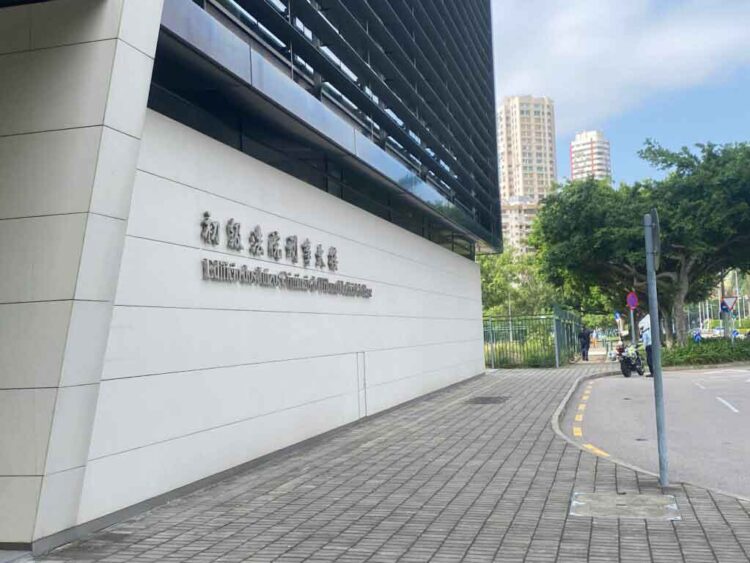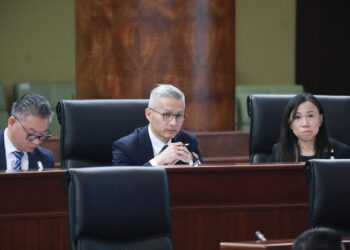The trial of former CEO of leading Macau junket Tak Chun Group, Levo Chan, saw closing arguments delivered in the Court of First Instance on Wednesday, with the verdict scheduled to be delivered on 21 April.
The seven defendants, including Chan, were charged with criminal association, nine counts of illegal gambling in a licensed area, 33 counts of substantial fraud, eight counts of attempted substantial fraud, one count of illegal gambling and one count of money laundering with aggravated circumstances.
There were originally nine defendants in the case, with the eighth and ninth defendants involved in loansharking offenses, but their criminal prosecution periods expired and their cases dropped.
Chan was the only one of the seven defendants to attend court on Wednesday.
Prosecution: Chan was the clear leader of Tak Chun
The Prosecutor’s Office claimed that after days of deliberations, there was ample evidence that Chan was manipulating and leading a criminal syndicate, using “betting under the table” to defraud the Macau government of gaming revenue and and using circuitous channels to transfer funds.
“Levo Chan used Tak Chun Group to control the betting under the table companies and he was a decision maker in the criminal syndicate. He also wholly owned some of the betting under the table companies,” the prosecution said.
Chan had returned to mainland China in the wake of fellow junket leader, Suncity Group’s Alvin Chau, being arrested in late 2021 before returning to Macau and bunking up in a hotel. With the help of the seventh defendant, Choi Wai Chan, Chan then attempted to travel to Taiwan. When the police arrested Choi they found a Ministry of the Interior document signed by Chan in relation to immigration procedures in Taiwan.
The prosecutor’s office said the evidence was sufficient to see that Chan intended to evade arrest and was aware of his criminal behavior. It also claimed Chan was involved in proxy betting, claiming that although wins and losses via this practice occurred in the Philippines, the evidence and witness statements reflected that many transactions took place in Macau.
“[They] used a roundabout way to collect funds … The prosecutor’s office found that 12 gamblers transferred more than HK$70 million to Tak Chun Group’s Bank of China account in order to repay their gambling debts. And Tak Chun’s Bank of China account transferred at least HK$3.2 billion to Levo Chan’s private account,” the office said.
It added that evidence in the case was sufficient to constitute an aggravated money laundering offense.
“It should be declared that property seized in the case belongs to the SAR government to supplement the proceeds of the fraud,” the office continued.
Defence: Charges against Chan “illogical”
The lawyer representing Chan delieverd his closing arguments for close to an hour and refuted many of the prosecution’s allegations. He pointed out that Macau law is based on the principle of presumption of innocence, and the defendant is innocent until the case is sentenced.
“I hope the court will take into account the current gambling participants and the current gambling environment,” he said.
He also claimed that in a layer-by-layer relationship, the real operator of a VIP room is the concessionaire.
“The gaming Junket is just an agent,” he said. “Betting under the table has been widely present in Macau for many years. Apart from the reason of its concealment, does law enforcement have an onlooker mentality when enforcing the law? Aren’t the concessionaires also responsible for this?”
Many of the witnesses in the case said they had heard that Tak Chun VIP rooms were operating “betting under the table” and proxy betting, however Chan’s lawyer refuted this, stating, “A lot of the witness testimony was indirect. Many of the witnesses said they ‘heard it’ but many of them heard it from other people, and under the Criminal Procedure Code, such indirect testimony cannot be used.”
The prosecution pointed out that Chan and others oversaw more than 3,400 instances of “betting under the table”, but his lawyer also argued, “Of these, only five had correct data comparisons and the police did not go to the VIP room to collect evidence in person, yet all the data comparisons were made nonetheless, which is illogical.”
The lawyer also mentioned that Chan has participated in many charitable activities over the years and is therefore not a profit-oriented person.
“Chan was hoping that Tak Chun would develop as a large-scale enterprise with annual audits, scale and considerable income,” he stated.
“It is not at all obvious that he wanted to engage in illegal activities. The revenue of Tak Chun over the years exceeded HK$30 billion and Tak Chun was operating a legitimate gaming Junket business.”
The verdict in Chan’s case will be handed down on 21 April 2023.



































